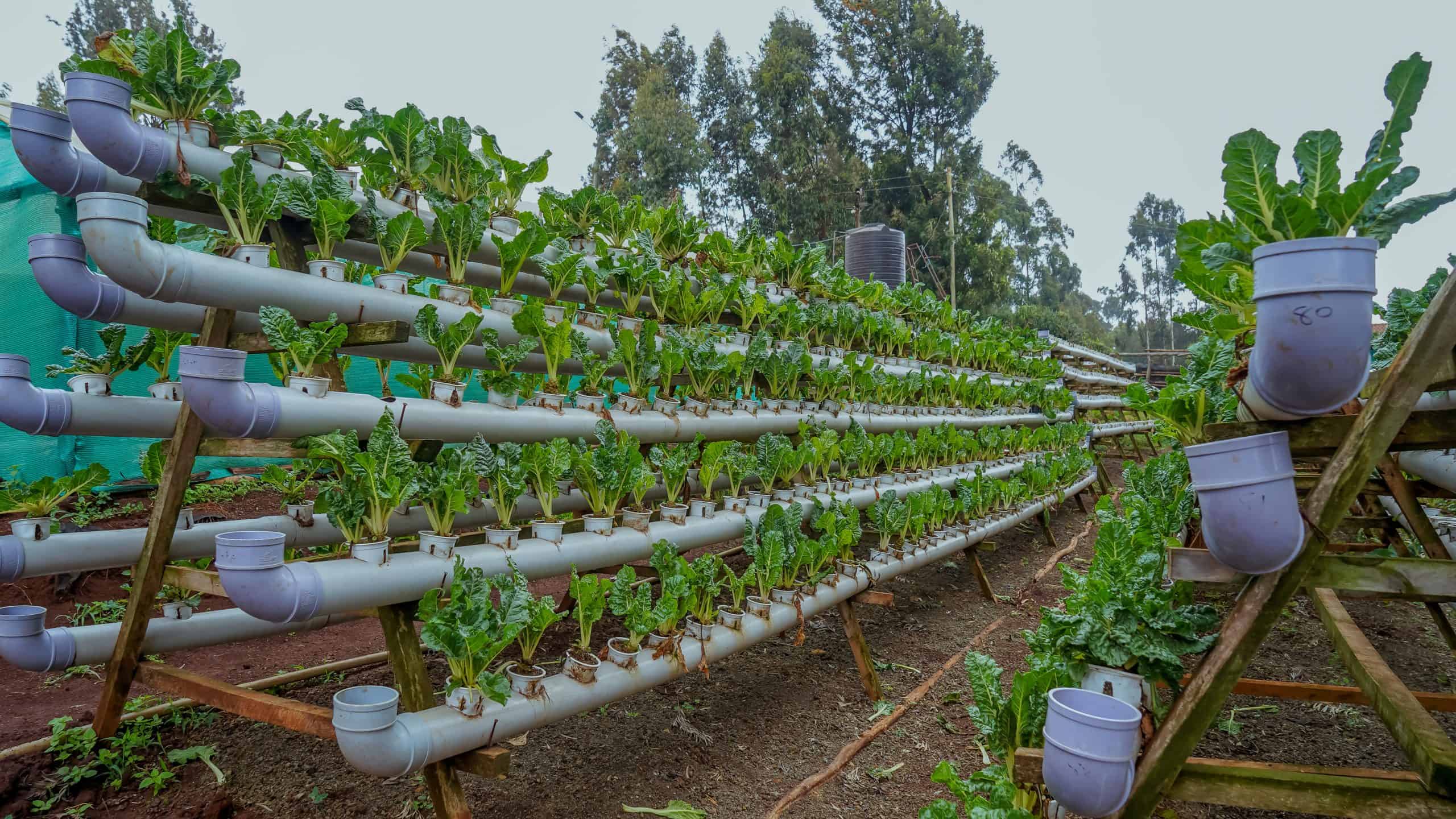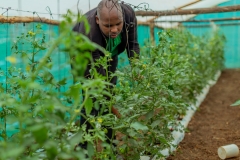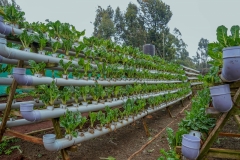Hydroponics Africa installs simplified cost-effective hydroponic farming solutions that deliver value through less water usage, reduced labor and land requirements, and increase in crop yield.
The company focuses on production and selling of fresh farm produce, manufacture and Installation of hydroponic systems , distribution and Installation of plant responsive systems , manufacture, and distribution of hydroponic nutrients and biopesticides , provision of smart farming digital platform which offers agronomy crop support and management and certified training and consultancy of hydroponic and plant responsive technologies. For the last 5 years, the firm has created over 20,000 employment opportunities, trained 23,100 women and youths on hydroponics and entrepreneurship and enabled production of over 8,763 tons of fresh farm produce.
Through the KKCF Funding, Hydronics is establishing acres of centralized hydroponic farming with production, training, and value addition infrastructure. The project will enroll 1,000 beneficiaries into an apprenticeship program aimed at training and empowering them with work opportunities. Additionally, the impact will enhance food and livestock fodder at household level and provide direct market linkage that will reduce post- harvest losses.
Visit the Hydroponics Africa website here: https://www.hydroponicsafrica.org/
Company FAQs
What attracted you to the Kakuma/Kalobeyei area? Why did you choose to apply for the KKCF funding?
Our aim is to feed the whole world by utilising a minimum of resources and saving water, and we were attracted to the available opportunities in the area; with the main point of attraction being the fresh produce market in the Kakuma-Kalobeyei area. The other main attraction point is the adaptability of hydroponic farming, as a preferable farming method because it uses minimal amounts of water and requires less manpower.
What do you look forward to doing in Kakuma/Kalobeyei? How do you see your business growing in the next 5 years?
We see ourselves as the largest producer and market of fresh produce in the area. Kakuma will move from being an importer of fresh produce to become an exporter. With improved
infrastructure and the discovery of more fresh underground water in the area, farming will become more viable.
What are some of the foreseeable impacts in the Kakuma and Kalobeyei area following your interventions?
We expect that:
- Locals will be able to get more fresh produce at a lower cost.
- There will be more direct and indirect employment opportunities leading to the economic empowerment of the local people.
- There will be a transfer of modern farming knowledge to the locals.
- The creation of water points will minimise water scarcity.
What advice would you give other SMEs in fragile situations, with refugees and their host communities?
- Start with the County Government for easier access to the host and refugees, and to collect relevant business data
- Engage and employ locals so that they have ownership of the project
- Carry out due diligence of the politics of the area
- Collect as much data as possible and try to drop the donor tag to avoid being overcharged for services. Both locals and refugees expect a higher payment of services and products from companies with a donor tag
- Liaise with the Deputy County Officer and Liaison officers for a better understanding of the security issues


